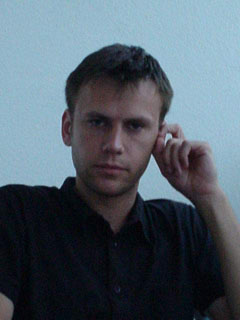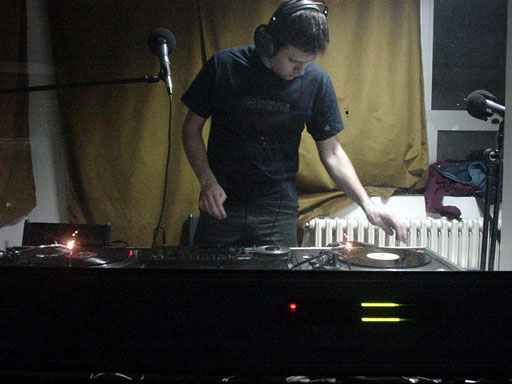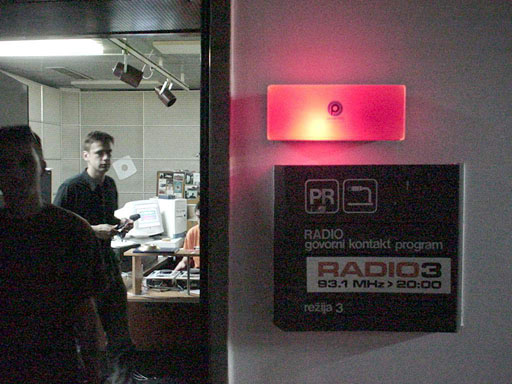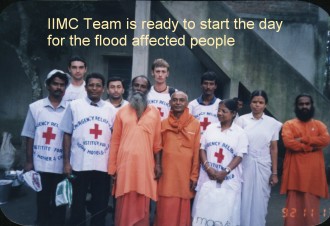Youth In Action Awards 2001: Honorable Mentions
| YouthGAS
Project Leader: Richard Ian Lenn, age 23
AUSTRALIA
"I guess it's all about finding out who you are and sharing your message. It's about looking for a niche and filling it. It's all about finding what you are passionate about and what you can do to develop your drive. I am still fairly surprised at what I have done and I often think about looking at the site from an outsider's perspectiveand how absolutely amazing the depth of information.I'm hoping to use this site as a platform and expand and develop into a more consolidated, pro-active and cohesive resource center for both young people and the youth sector in Australia." |
|
 |
YouthGAS is a website that provides information to and for youth groups, youth service organizations and young people focusing on Australia and for the first time, brings a huge cross-section of the youth sector together. It is continually updated, checked and kept current. One of the biggest issues young people have is gaining access to information and YouthGAS tries to help by providing a wealth of information in a clear, simple and easy to navigate way, enabling young people and the youth sector to be more aware of the opportunities that exist.
YouthGAS is fast becoming a vital content provider in Australia, featuring youth-related Internet links, the only collection of youth events in every state, a large collection of youth-sector resources, one of the most active email discussion groups and the only collection of local youth advisory groups covering the nation.
YouthGAS has received nation-wide positive feedback from many youth organizations, groups and government departments / non-government bodies and will continue to be maintained, as well as grow and extend its reach, both as a vital information source and for networking opportunities for young people and the entire Australian youth sector.
|
Radio3
Project Leader:Enes Haracic, age 26
BOSNIA & HERZEGOVINA
"RADIO3 is our way of telling the world that we exist and telling our audience that the world exists. The rest is the pure love for the vibe." |
|
 |
RADIO3 Sarajevo - FM Student radio 106.5 FM - is youth music radio station that broadcasts new, contemporary, progressive pop music right across all experimental genres and the traditional mainstream. It follows the trends as well as independent production and supports the growing local scene, targeting the young, cosmopolitan audience, people with the wide range of interests in new music and entertainment. The station not only reports on the forms of expression of youth and pop culture, but also understands itself as a part of these scenes. The music specialists in charge for different parts of program are active artists or DJs themselves. RADIO3 gathers young professionals (average age 23) with the long experience in media and on thescene.
RADIO3 is (unfortunately) the only radio station of that kind in Bosnia and Herzegovina and it is a window to the world for young, urban, open-minded people of Bosnia and Herzegovina. It is also one of the efforts towards the reconstruction of the war torn society and cultures a step towards the integration in European urban scene.
RADIO3 was founded by a group of young radio enthusiasts and music experts in April 2000 and has already caught momentum and created the wide circle of its own audience among the youth. RADIO3 broadcasts the program bilingually in Bosnian and English. All RADIO3 personnel work completely on a volunteer basis and do not receive any financing.
 |
|
 |
| Paulo Freire College Preparatory Course
Project Leader: Flávio Côrte Pinheiro de Sousa, age 19
BRAZIL
"We want to say thank you to everyone that helps us in this project which we are sure will make the world a better place to live in. We believe that knowledge gives you choices and choices give you freedom. That's one of the reasons we developed this project." |
|
 |
In early 2000 three college students from Brazil decided to develop a project to help people get into college. As the world knows, Brazil is a poor country and the majority of its population is very poor and doesn't have access to a higher level of education. To get into public colleges, students have to take very difficult tests called "Vestibulares". There are two types of Universities, the private ones that are very expensive and the public ones that require very high test grades.
The problem in Brazil is that poor people, the majority of the population, only have access to bad public schools and don't have access to a higher education, most end up stopping their studies in high school. Nowadays, 90% of public college students come from private schools. In order to change this situation three college students (Flávio Côrte Pinheiro de Sousa, Rommel Madeiro de Macedo Carneiro and Igor Costa de Miranda) developed a project where they and other friends volunteer and teach students that come from public schools and wish to further their education.
During the week and on weekends from 8:00 a.m. to 6 p.m. the volunteers prepare 70 students to take the tests. They teach Portuguese, English, Spanish, Literature, Math, Biology, Chemistry, Physics, Geography, Local, National and World History, as well as Human Rights and the Brazilian Federal Constitution. The students have access to newspapers, magazines, and books from a small library being developed and from the Internet. There is a psychologist that also provides vocational counseling to the students.
The name "Curso Paulo Freire Vestibulares" was chosen because Paulo Freire was one of the greatest sociologists the world has ever known. The project is a little more than a year old and already we have achieved some success. Last year more than 30% of our students were accepted by colleges and have the hope of a better future. Some of these students are developing their own projects to help others have a better life.
When we help these people we are not only helping them but also their parents and relatives. We are aware that 70 students may not be that many but it is within our plan to grow. Next year we intend to have 120 students and to keep growing each year after that. We are working slowly because we think quality is much more important than quantity when it comes to preparing these students.
Calcutta Project
Project Leader: Giovanni Landoni, age 22
ITALY
The Calcutta Project (based in Italy) works together with an Indian NGO (Indian Institute for Mother and Child - IIMC) to improve the life standards of a rural area south of Calcutta, India. Medical students from Milano and many other cities worldwide live for a small period of time in Calcutta, learning tropical medicine and public health project development. To date, over 300 students have participated in the exchange.
Four outdoor clinics (outpatients) have been run daily and a small hospital/nutritional center has been built. Seven schools have been built or repaired and 600 students have been adopted. A micro-credit project has just started and we're currently fundraising for it. A core group of 20-40 young Italians are volunteering for the project with daily work and weekly meetings. This project was born and is still running within the many activities of the International Federation of Medical Students' Association (SISM-IFMSA).
 |
|
"This is the way I want to spend my life" ... I wrote on the guest book of IIMC in 1993. I've not yet achieved that intensity of life and that enthusiasm that belongs to the Indian volunteers but I'm still working on it. If you're looking for a possibility to reach developing countries and do a good job or to fund-raise a solid project write us. |
Olive Branch Youth Magazine
Project Leader: Jared Heath Fishman, age 24
ISRAEL
"Now more than ever it is vital for youth to speak out and have our voices heard. For years, I have worked in regions of conflict, and seen the horror of war. Because of the many bright voices of youth--who demand a better life, who scream for peace and reconciliation, who work endlessly for a better tomorrow--I have been instilled with hope that the future can and will be better."
The Olive Branch Magazine is the largest youth magazine for regions in conflict. In the latest issue, over 60 writers from 11 different nations produced this 32-page magazine. The goal of this publication is to promote cultural and social awareness and tolerance among youth in conflict-torn regions of the world. The current issue highlights the current violence in the Middle East, analysis of recent elections in the Balkans, and a survey of 1,500 youth in Cyprus on the peace process.
In conflict regions around the world, youth rarely learn the other side's perspective, nor do they learn how to effectively communicate with their peers on the other side. Through articles on political, social, and cultural issues, The Olive Branch allows readers to better understand different viewpoints. Additionally, writers are challenged to express their perspectives in an effective and powerful manner so that the other side can understand them.
10,000 copies of The Olive Branch were sent to youth around the world. Groups of youth are currently working on developing a program so that The Olive Branch can be used as a teaching tool in their schools.
Slums Information Development & Resource Centers (SIDAREC)
Project Leader: Lucy Mukami Mathai, age 28
KENYA
"Youth could achieve a lot if given support since they are better placed to tackle some of these problems."
Slums Information Development & Resource Centres(SIDAREC) is a community based youth-serving organization located the urban slums of Nairobi-Kenya. It is owned and managed by the youths who reside in the targeted slums and was established by young people with a simple mission of identifying resourceful youth in the slums and engaging them in the betterment of their community.
Presently, the organization operates in seven slums of Nairobi. The first pilot project began in Pumwani slums, with a population of over 200,000 people. In the year 2000, they replicated the Pumwani project to another slum in Nairobi, Mukuru kwa Njenga, with a population of 350,000 people. The projects include capacity-building workshops with young people, establishing media and communication channels within the community for better information sharing, building resource centers to distribute reading, audio and video materials and providing counseling services. The organization hopes to reduce poverty by promoting income-generating community-based projects and reducing the number of street children through prevention initiatives that work with parents on child development issues. A computer-training course is currently being launched as well as a reproductive health campaign to educate the public about STDs and an Early Childhood Development initiative that will focus on child right advocacy and basic education.
The organization started as a youth group in 1996. But this status was limiting in terms of scope and ability to cope with the ever-increasing number of members and social problems. With this in mind, they sought NGO status and registered in 1997.
Firefly Youth Project
Project Initiator: Ellie Maxwell, age 24
SCOTLAND
"I started Firefly because I believe that solutions to many of the problems around us can be solved only from within the communities in which we live. These communities should not be defined by nationality or geographic border - rather, I believe that people from the youth community internationally can achieve more by creating links between themselves and supporting one another, than by simply concentrating on the specific problems of their own communities. At the same time, these problems do need to be addressed, and for this reason Firefly emphasizes very strongly the importance of empowering young people from marginalized communities to address problems in their own locality, while building up support and long-term links between them and other groups with similar aims. I am really pleased to be recognized by GYAN, if only because it will provide us with an opportunity to make contacts with other youth groups instrumental in creating change in their own and other communities. So thank you!"
Firefly runs cultural & educational activities (music, photography, drama, languages, computers, journalism, discussion groups & more) in three centers in the Brcko district of Bosnia. We promote reconciliation and communication between young people from different ethnic groups in Bosnia and the international community, allowing them to take part in activities of interest to them, learning skills and mingling in a neutral and safe environment. We publish a monthly youth magazine, giving youth a voice in the community, and run adult education classes.
We run a cultural exchange program allowing young people from Bosnia and Britain to participate in shared projects during summer camps, festivals and other projects. These events give young people from many areas opportunities to learn new skills, share knowledge and experience, create links and learn about other cultures.
We work regularly with 350 young people, and 2,500 on short-term projects. We have given young people opportunities to gain qualifications which have directly enabled them to find work; we have also trained 7 project workers in Bosnia, who now manage the project locally; and we have run the only projects allowing young people from the different areas of Bosnia to participate in events together in Brcko district.
We currently hope to set up a music therapy program in Brcko, and to work more with marginalized communities in Britain.
Sewage Cleaning on Our Streets
Project Leader: Fouotsa Mirabeau, age 23
CAMEROON